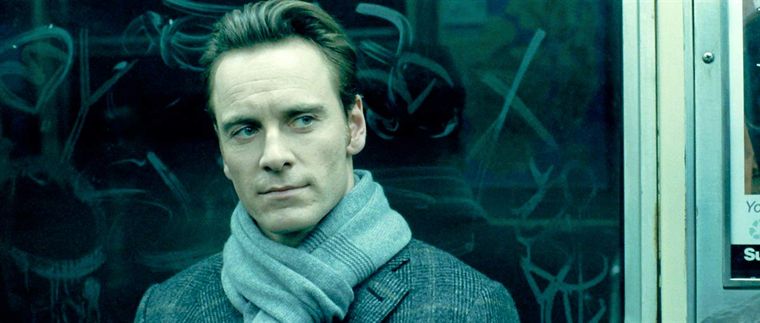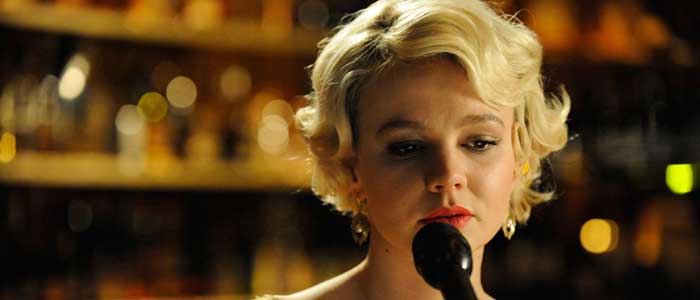There are several actors that have been garnering critical acclaim for roles in less than spectacular films this season (including Meryl Streep in The Iron Lady and Leonardo DiCaprio in J. Edgar). While director Steve McQueen’s indie, Shame (2011), hasn’t made enough buzz to be considered a candidate for much other than Michael Fassbender’s performance, I would argue that the film itself is quite strong beyond the single performance.
Read on for my review…I’m not going to review the film in the traditional sense for a few reasons: 1) the film is less of a narrative than a collection of sequences that follow each other more or less chronologically, 2) the film’s allure is in its performances and its aesthetic and 3) I’d rather tantalize you into seeing it rather than giving it away.
So what is there to say about a film that’s notorious for its daring portrait of a man suffering from sex addiction, which features some rather risque sexual scenes in addition to full frontal male nudity (which remains a cinematic taboo)? We could address its lack of rating (the Motion Picture Association of America refused to give it anything less than an X rating – traditionally assigned to pornography and the financial kiss of death for films) or the significant awards buzz surrounding it (primarily for Fassbender, but also for Carey Mulligan’s Sissy, and director McQueen).
Instead I’d rather explore how the films works and makes you feel.
The nearest comparison that comes to mind is a cross between another stylistic art film, Tom Ford’s A Single Man (2009), and Darren Aronofsky’s Requiem for a Dream (1999), which captured characters living in a vicious cycle so memorably. This is a film about characters who are imprisoned within their own vices. For Fassbender’s Brandon, it’s his crippling addiction to sex, which he must satisfy several times a day, in any way possible. For his sister, Sissy, it’s her complete emotional dependency on others, the result of which dumps her on Brandon’s door.
I wouldn’t call the film depressing, because that makes it sound like a chore to watch. And it’s not: I found myself completely engrossed in the troubled lives of these damaged characters. Brandon’s life is filled with sterile environments, in particular his bare apartment and similarly adorned office. Director McQueen reinforces the coldness and sterility of these locations with off-centered shots that leave large, empty gaps of space that reinforce how isolated Brandon is. This is in contrast to McQueen’s affinity for unsparingly lengthy shots (many in close up) that provoke awkward discomfort in viewers because of their naked, raw intimacy. One shot in particular has garnered a significant amount of attention: an extended take of Sissy singing “New York, New York” at an upscale nightclub. The camera tightly frames her petite face for what seems like minutes before finally cutting away to Brandon, ashamedly wiping away tears. Click on the image below for a taste, although without context, it does lose some of its emotional punch.
The relationship between the siblings is complicated. It’s clear that they’ve survived something that’s deeply affected them both, although the specifics are never explored (rightfully so). Brandon sometimes appears to be an automaton – an unfeeling man who’s only appetite is for sex – and this is presented without commentary in the opening montage as we witness his morning routine while cross-cutting between his aggressive pursuit of a married woman on the subway. Sissy, meanwhile, is a disaster: a sexual being unable to put down roots or make any action without regret or apology.
What happens between them in the film is less important than the idea that their relationship has been this way for a very long time. The film is built on a number of visual and narrative call-backs (events at the subway platform, the pursuit of the married woman, the opening montage as well as the climatic “break-down” that finds Brandon cruising first a gay bar before engaging in a graphic threesome with two women). It’s problematic because everything in the film suggests that events are cyclical, from which we can infer that even at the end of the film, these damaged siblings will continue on as they always have, hurting themselves and others.
It’s not an easy night out at the movies, but this emotional, beautiful film is well worth seeing.
Other Considerations:
- One bit of notoriety the film likely doesn’t want to be associated with is being afraid of gay sex as one article infers. It’s an interesting perspective that I may not have considered had I not read the piece beforehand. After viewing the film, I can easily see the issue the author explores. The chaste, albeit suggestive gay sex scene directly precedes a graphic threesome (which includes Brandon licking and possibly knocking at the back door of one woman). The close proximity makes it all the more obvious that portrayals of gay sex remain a complicated (to put it delicately) matter, even for low budget independent films released without ratings. For now Shortbus (Cameron Mitchell, 2006) remains the gold standard to beat.


Thanks for such a thoughtful review. I’ve been toying with seeing Shame for a while now, and after reading your commentary it seems as though it’s is worth seeing. Thanks!
I’m working up the courage to see this one…thanks for easing me into it…lol (I truly didn’t mean that to sound sexual!) I guess it’s the subject matter–makes everything seem, well, seedy.
It is a little seedy, though I would say it’s more uncomfortable than anything else. If you’ve seen Canadian cinema (Cronenberg, Egoyan), this isn’t much more “challenging”
I showed up for penis, and walked away with an enriching and moving theatrical experience.
that made me laugh out loud
I so want to see this film. Waiting for the dvd or streaming at this point as It still is not in theaters near me. Nice review